Filter by
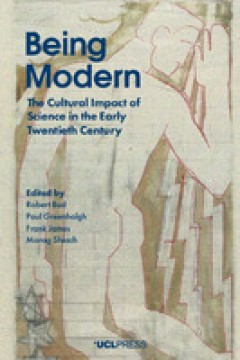
Being modern : the cultural impact of science in the early twentieth century
In the early decades of the twentieth century, engagement with science was commonly used as an emblem of modernity. This phenomenon is now attracting increasing attention in different historical specialties. Being Modern builds on this recent scholarly interest to explore engagement with science across culture from the end of the nineteenth century to approximately 1940. Addressing the breadth …
- Edition
- -
- ISBN/ISSN
- 9781787353930
- Collation
- xvii. ;ill. : 438 p.
- Series Title
- -
- Call Number
- 306.45. FRA b
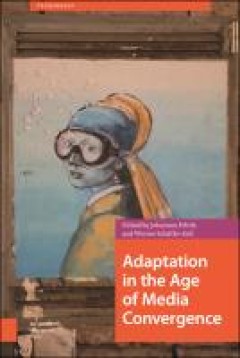
Adaptation in the age of media convergence
This collection considers new phenomena emerging in a convergence environment from the perspective of adaptation studies. The contributions take the most prominent methods within the field to offer reconsiderations of theoretical concepts and practices in participatory culture, transmedia franchises, and new media adaptations. The authors discuss phenomena ranging from mash-ups of novels and Yo…
- Edition
- 10
- ISBN/ISSN
- 9789048534012
- Collation
- 232 p.
- Series Title
- -
- Call Number
- 700.457 FEH a
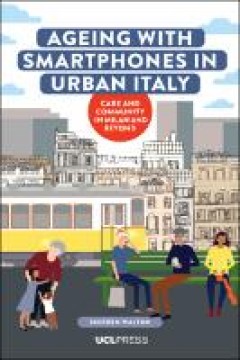
Ageing with Smartphones in Urban Italy : Care and community in Milan and beyond
‘Who am I at this (st)age? Where am I and where should I be, and how and where should I live?’ These questions, which individuals ask themselves throughout their lives, are among the central themes of this book, which presents an anthropological account of the everyday experiences of age and ageing in an inner-city neighbourhood in Milan, and in places and spaces beyond.Ageing with Smartpho…
- Edition
- -
- ISBN/ISSN
- 9781787359710
- Collation
- 188p. ; ill.
- Series Title
- Ageing with Smartphones
- Call Number
- 305.260945211 SHI a

Healthcare as a universal human right : sustainability in global health
This important book outlines how, despite varying levels of global socio-economic development, governments around the world can guarantee their citizens’ fundamental right to basic healthcare. Ground in the philosophical position that healthcare is an essential element to human dignity, the book moves beyond this theoretical principle to offer policy makers a basis for health policies based o…
- Edition
- -
- ISBN/ISSN
- 9781003241065
- Collation
- vii, 188 p. : ill.
- Series Title
- -
- Call Number
- 362.1 NUN h
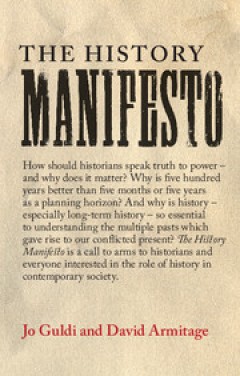
The history manifesto
How should historians speak truth to power – and why does it matter? Why is five hundred years better than five months or five years as a planning horizon? And why is history – especially long-term history – so essential to understanding the multiple pasts which gave rise to our conflicted present? The History Manifesto is a call to arms to historians and everyone interested in the role o…
- Edition
- -
- ISBN/ISSN
- 9781139923880
- Collation
- ix, 165 p. : ill
- Series Title
- -
- Call Number
- 901 GUL t
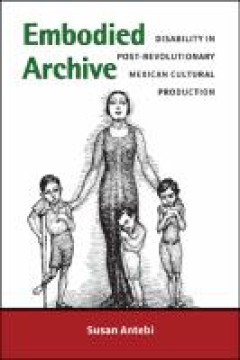
Embodied archive: disability in post-revolutionary Mexican cultural production
"Embodied Archive focuses on perceptions of disability and racial difference in Mexico’s early post-revolutionary period, from the 1920s to the 1940s. In this period, Mexican state-sponsored institutions charged with the education and health of the population sought to strengthen and improve the future of the nation, and to forge a more racially homogeneous sense of collective identity and hi…
- Edition
- -
- ISBN/ISSN
- 9780472902422
- Collation
- 283 p.: ill.
- Series Title
- Corporealities: Discourses Of Disability
- Call Number
- 305.908097209041 ANT e
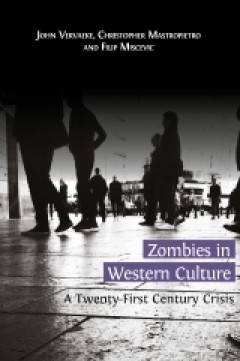
Zombies in western culture: a twenty-first century crisis
Why has the zombie become such a pervasive figure in twenty-first-century popular culture? John Vervaeke, Christopher Mastropietro and Filip Miscevic seek to answer this question by arguing that particular aspects of the zombie, common to a variety of media forms, reflect a crisis in modern Western culture. The authors examine the essential features of the zombie, including mindlessness, ugl…
- Edition
- -
- ISBN/ISSN
- 9781783743308
- Collation
- viii, 93 p. : ill. : ind. ; 24 cm
- Series Title
- -
- Call Number
- 398.21 VER z
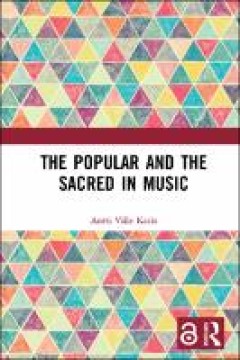
The popular and the sacred in music
Music, as the form of art whose name derives from ancient myths, is often thought of as pure symbolic expression and associated with transcendence. Music is also a universal phenomenon and thus a profound marker of humanity. These features make music a sphere of activity where sacred and popular qualities intersect and amalgamate. In an era characterised by postsecular and postcolonial processe…
- Edition
- -
- ISBN/ISSN
- 9781003183648
- Collation
- XII, 198 p.
- Series Title
- -
- Call Number
- 781.64112 KAR p
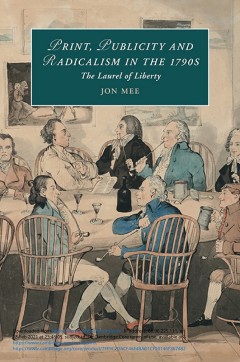
Print, publicity, and popular radicalism in the 1790s : the laurel of liberty
Jon Mee explores the popular democratic movement that emerged in the London of the 1790s in response to the French Revolution. Central to the movement's achievement was the creation of an idea of 'the people' brought into being through print and publicity. Radical clubs rose and fell in the face of the hostile attentions of government. They were sustained by a faith in the press as a form of 'p…
- Edition
- -
- ISBN/ISSN
- 9781316459935
- Collation
- xiii, 272p. : ill.
- Series Title
- -
- Call Number
- 302.232094109033 MEE p
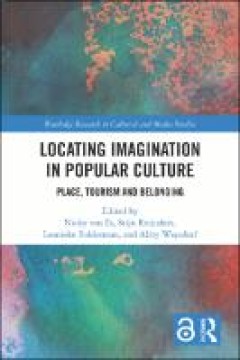
Locating imagination in popular culture : place, tourism and belonging
Locating Imagination in Popular Culture offers a multi-disciplinary account of the ways in which popular culture, tourism and notions of place intertwine in an environment characterized by ongoing processes of globalization, digitization and an increasingly ubiquitous nature of multi-media. Centred around the concept of imagination, the authors demonstrate how popular culture and media are beco…
- Edition
- -
- ISBN/ISSN
- 9781000223835
- Collation
- XIV, 319 p.
- Series Title
- Routledge Research in Cultural and Media Studies,
- Call Number
- 306 LOC l
 Computer Science, Information & General Works
Computer Science, Information & General Works  Philosophy & Psychology
Philosophy & Psychology  Religion
Religion  Social Sciences
Social Sciences  Language
Language  Pure Science
Pure Science  Applied Sciences
Applied Sciences  Art & Recreation
Art & Recreation  Literature
Literature  History & Geography
History & Geography